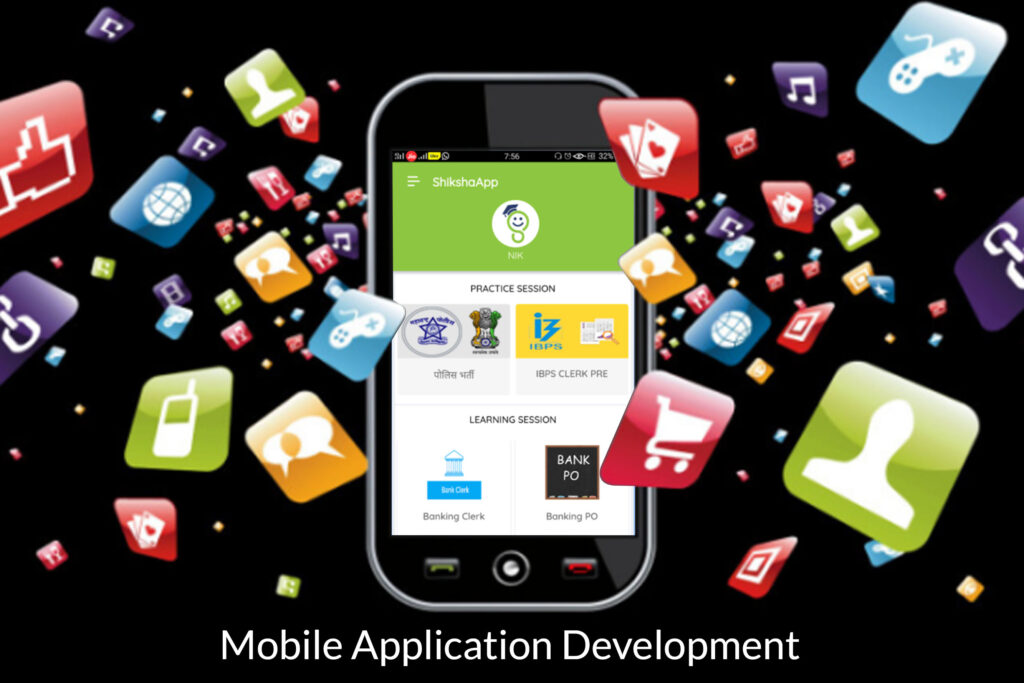Mobile Application

What Does Mobile Application (Mobile App) Mean?
A mobile application, most commonly referred to as an app, is a type of application software designed to run on a mobile device, such as a smartphone or tablet computer. Mobile applications frequently serve to provide users with similar services to those accessed on PCs. Apps are generally small, individual software units with limited function. This use of app software was originally popularized by Apple Inc. and its App Store, which offers thousands of applications for the iPhone, iPad and iPod Touch.A mobile application also may be known as an app, web app, online app, iPhone app or smartphone app.
Techopedia Explains Mobile Application (Mobile App)
Mobile applications are a move away from the integrated software systems generally found on PCs. Instead, each app provides limited and isolated functionality such as a game, calculator or mobile web browsing. Although applications may have avoided multitasking because of the limited hardware resources of the early mobile devices, their specificity is now part of their desirability because they allow consumers to hand-pick what their devices are able to do.The simplest mobile apps take PC-based applications and port them to a mobile device. As mobile apps become more robust, this technique is somewhat lacking. A more sophisticated approach involves developing specifically for the mobile environment, taking advantage of both its limitations and advantages. For example, apps that use location-based features are inherently built from the ground up with an eye to mobile given that the user is not tied to a location, as on PC.
Apps are divided into two broad categories: native apps and web apps. Native apps are built for a specific mobile operating system, usually iOS or Android. Native apps enjoy better performance and a more finely-tuned user interface (UI), and usually need to pass a much stricter development and quality assurance process before they are released.
Web apps are used in HTML5 or CSS and require minimum device memory since they’re run through a browser. The user is redirected on a specific web page, and all information is saved on a server-based database. Web apps require a stable connection to be used.
There are several types of apps currently available.
Gaming apps: The equivalent of computer video games, they are among the most popular types of apps. They account for one-third of all app downloads and three-fourths of all consumer spending.
Productivity apps: These focus on improving business efficiency by easing various tasks such as sending emails, tracking work progress, booking hotels, and much more.
Lifestyle and entertainment apps: Increasingly popular, these encompass many aspects of personal lifestyle and socialization such as dating, communicating on social media, as well as sharing (and watching) videos. Some of the most widely known apps such as Netflix, Facebook or TikTok fall into this category.
Other app types include mobile commerce (M-commerce) apps used to purchase goods online such as Amazon or eBay, travel apps that help a traveler in many ways (booking tours and tickets, finding their way through maps and geolocation, travel diaries, etc.), and utility apps such as health apps and barcode scanners.
Secure Mobile Applications
In most cases, mobile applications are developed to be an interface to the standard application. The mobile application sits between the standard application and the mobile client, and it handles communications between the mobile client and the standard application. There are, of course, exceptions where a mobile application is developed independently, but the security controls will remain the same.Mobile Application Security Controls
One of the biggest mistakes that mobile application developers make is assuming that only mobile devices will interact with the mobile application. Assuming the mobile application server is network accessible, any system with access to the network will be able to attack that application server. So, for example, let’s consider the Chevy Volt OnStar mobile applications again. Users will be able to use an iPhone, BlackBerry, Droid, or most mobile Web browsers to remotely control certain functions in their Chevy Volt car from anywhere.9 In order to provide this level of access, the mobile application server(s) will be Internet accessible. Thus, any system with an Internet connection will be able to attack that application server.Open Web Application Security Project (OWASP)
Web Application Security Consortium (WASC)
The effectiveness and moderators of mobile applications for health behavior change
The number of mobile application–based health interventions has grown along with an increasing proportion of mobile phone users. However, findings related to the effectiveness of such interventions have been inconsistent, which leaves unanswered the question of whether mobile application–based health interventions are more effective than comparison conditions. Additionally, the conditions under which mobile application–based health interventions are most effective have not been investigated via moderator analyses. This metaanalysis synthesizes result from studies of mobile application–based health interventions by calculating an overall effect size and analyzing potential moderators of effectiveness. The positive effect size and statistically significant moderators provide important theoretical and practical implications for mobile application–based health interventions.